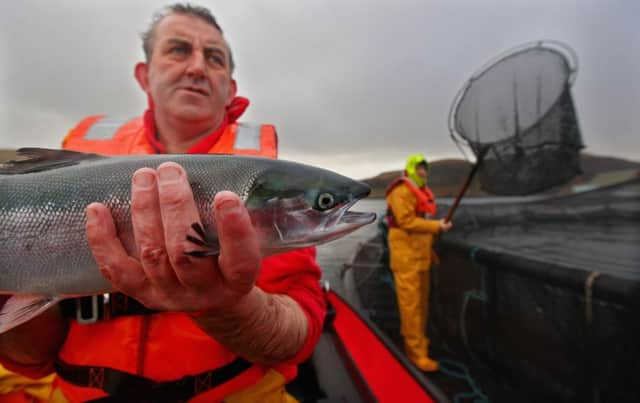Holyrood '˜failing to safeguard Scottish salmon'


The Scottish Government was required under EU law to set out measures to achieve or maintain good environmental status in marine and coastal waters by 2020, and begin implementing them by the end of this year.
This includes protecting wild salmon from sea lice escaped from fish farms. However, conservationists say efforts are inadequate to address the full scale of the sea lice problem and cannot achieve the objectives of the EU’s Marine Strategy Framework Directive.
Advertisement
Hide AdAdvertisement
Hide AdNow they have written to the commission, claiming Scottish ministers have ignored evidence and refused to take a tough enough stance against the aquaculture industry.
Andrew Graham-Stewart, director of Salmon & Trout Conservation Scotland (S&TCS), said: “The response of the Scottish Government to these threats has been and remains inadequate. Despite our best efforts over many years, the Scottish Government has not been persuaded of the need to act robustly to deal with the sea lice issue.
“S&TCS has been left with no choice but to ask the European Commission to intervene.”
There number of salmon in Scottish rivers has declined steeply in the past 65 years. The latest catches are the lowest ever recorded, down 50 per cent in the past five years.
The cause is not clear, but some experts believe infestations of sea lice play a part.
The parasites occur naturally in the sea but in much higher densities near fish farms. They grazing on the mucous and skin of salmon and trout.
Large infestations cause the loss of fins, scarring, infections and eventually death. Fish are literally eaten alive.
S&TCS say tighter regulation is needed to protect wild fish and comply with EU law.
Advertisement
Hide AdAdvertisement
Hide Ad“Scotland has a robust legislative and regulatory framework in place, which continues to provide the right balance between growing aquaculture and protecting the environment,” a Scottish Government spokeswoman said.
“We have invested significantly in science, research and innovation to enhance the environmental sustainability of the sector.
“We will continue to work with industry to address this issue, including investing in biological management techniques such as the use of cleaner fish as well as trialling other new technologies.”